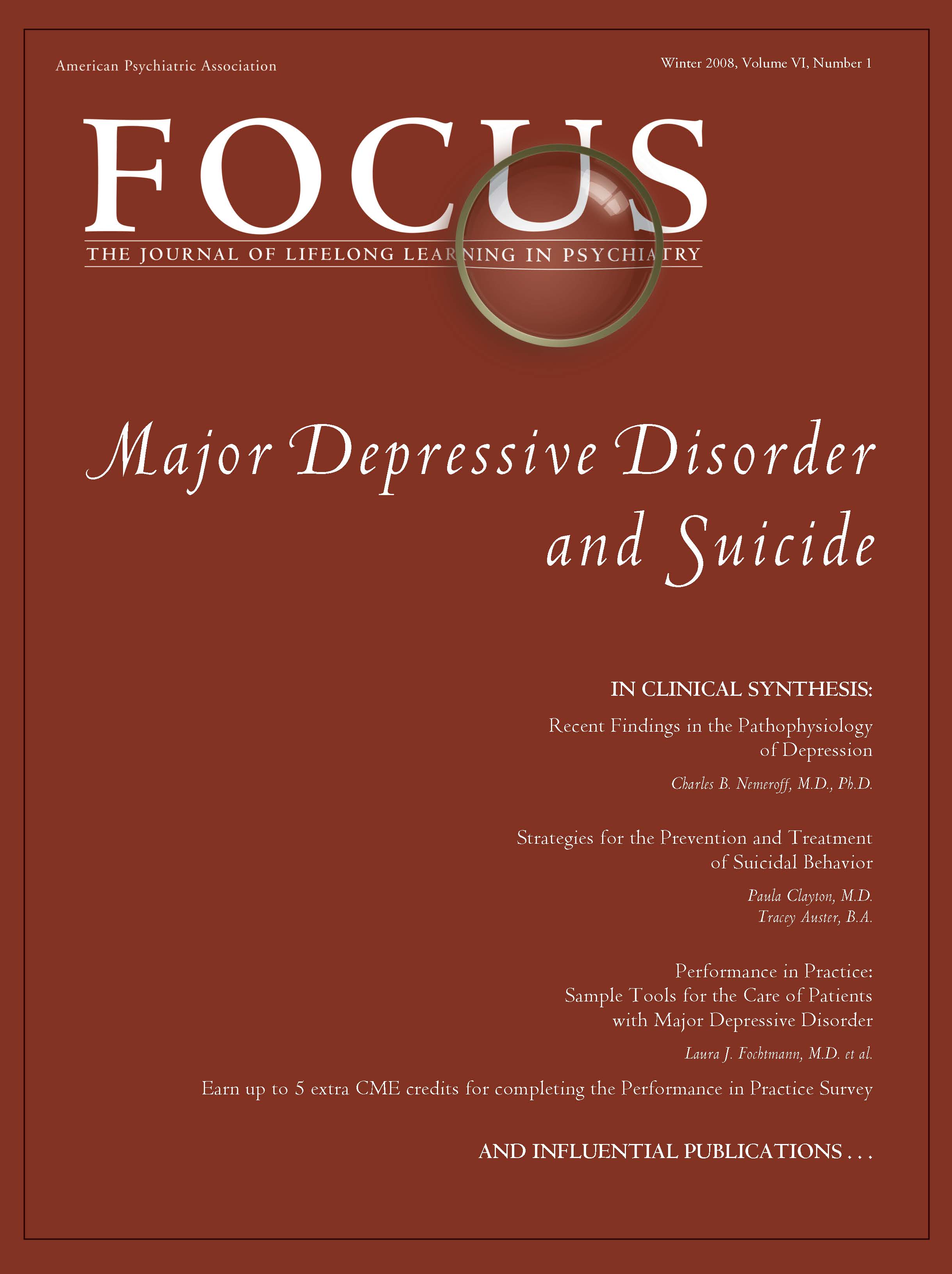Ask the Expert: Major Depressive Disorder
I have a high-functioning patient with major depression. He is responding to an SSRI medication, but I am contemplating adding psychotherapy. What are the advantages of psychodynamic psychotherapy compared with CBT for a patient like this?
The question is a good one, one that is frequently asked in clinical settings. First of all, before determining the type of psychotherapy, one must decide if the SSRI is sufficient by itself. Studies of combined SSRIs and psychotherapy are not conclusive about an additive value when the two treatments are combined, except for the case of severe depressions. In mild to moderate depression, often the decision boils down to what the patient wants and whether the recovery with medication is only partial.
We know from research that both CBT and psychodynamic therapy can be helpful in the treatment of major depression (1, 2). Although there are more randomized controlled trials supporting CBT, we have few data to determine which patient might do better with which type of therapy. Some patients are highly motivated to seek further understanding about what has caused their depression and what might lead to relapse. This wish to understand may be an indication for adding psychotherapy, and those patients who want more than symptom relief may prefer a dynamic approach. Some depressed patients do not like the prescriptive aspect of CBT and may object to homework. It is worth exploring with the patient if he or she has a preference for one type of psychotherapy over another.
A strong argument can be made for further exploration of vulnerability factors that lead to the risk of relapse. We know that the propensity for relapse after symptom-directed treatment is profound (3). Recent research suggests that certain relational or interpersonal schemas of self and others, accompanied by cognitive and affective components, may establish environments that are depressogenic (4). It may be that symptom-focused treatment for depression may temporarily address these schemas, but ongoing stressors activate the vulnerabilities again, leading to recurrent depression. Hence a critically important part of the psychotherapy of depression may be an exploration of the interpersonal schemas that appear to create patient expectations and subsequent disappointments in relationships. By focusing on these factors, it is possible that the stressors and vulnerability can be mitigated.
It is noteworthy in this regard that in the elegant work of Kendler et al. (5), they found in a population of female twins that stressors with particular meaning to the individual were more closely linked to the onset of major depression. For example, an episode of depression was predicted by stressors with higher ratings of humiliation and loss because of a separation initiated by a significant other. These stressors are more depressogenic than pure loss events such as death. A dynamic psychotherapist may be able to link these feelings of humiliation and depression to the narcissistic injury inherent in being “dumped” by a partner. This exploration may lead to specific patterns of internal object relationships that result in recurrent self-defeating patterns. Further discussion of these issues may lead to a sense of mastery over previously unconscious relational patterns and may strengthen the patient's resilience regarding the risk of further episodes.
1 Beck AT: The current status of cognitive therapy: a 40-year retrospective. Arch Gen Psychiatry 2005; 62: 953– 959Crossref, Google Scholar
2 Leichsenring F, Rabung S, Leibing E: The efficacy of short-term psychodynamic psychotherapy in specific psychiatric disorders. Arch Gen Psychiatry 2004; 61: 1208– 1216Crossref, Google Scholar
3 Ingram RE, Price JN (eds.): Vulnerability to Psychopathology: Risks across the Lifespan. New York, Lippincott Williams & Wilkins, 2002Google Scholar
4 Zuroff DC, Mongrain M, Santor DA: Conceptualizing and measuring personality vulnerability to depression: comment on Coyne and Whiffen (1995). Psychol Bull 2004; 130/3: 489– 511Crossref, Google Scholar



